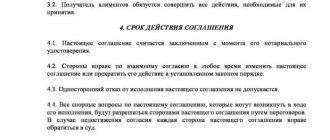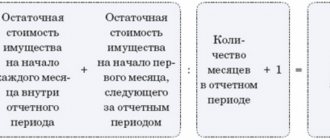The procedure for seizing the property of a spouse in divorce proceedings
Seizure of marital property is a matter involving litigation. A case is initiated if the owner of the movable or real estate is in dispute. During the trial, spouses become plaintiff and defendant.
The plaintiff requests that the spouse's property be confiscated and indicates by name. Subsequently, the defendant spouse will not be able to hide it from the other party.
Typically, this procedure is preceded by a divorce of the spouses, which, as a rule, is inextricably linked with each other. In order to prevent this lawsuit, it is recommended to draw up a prenuptial agreement before entering into marriage, which spells out the details of the division of property.
If the spouses have gone through the divorce procedure, but the issue of dividing their property is quite acute, the plaintiff spouse can petition to seize the property of the former spouse (read about the property of the spouses that is not subject to division at the link).
Registration and inventory of property
According to the regulatory documents given above, bailiffs have the full right to confiscate property that is in the possession of third parties, but is associated with the debtor's registration. Many will think this is unfair, but let's delve into this issue.
Firstly, bailiffs cannot make an inventory of property that, according to some documents, belongs specifically to a relative of the debtor. It is necessary to provide employees with receipts or a purchase and sale agreement for the property, then the bailiffs have no reason to seize this property.
Secondly , if we are talking about a married couple, then bailiffs do not have the right to confiscate property in full. The fact is that property in marriage is common and service employees can confiscate only half.
Before arriving, bailiffs are required to send written notice. Telephone warning is also allowed. If there are some significant objects in your apartment, but there are no documents for them, then it is better to give them to friends for temporary storage.
The procedure for seizing the property of the debtor's spouse
But more often the situation is like this: one of the divorced spouses has a debt that he cannot pay off, so the bailiffs file a petition with the court specifically to seize property from the personal use of the already divorced debtor spouse.
If the spouses did not file documents for divorce, then the bailiffs will seize the joint property of the spouses for the unpaid debt or loan. But it is confiscated, as expected, according to a court decision and sold at auction.
If the bailiffs take away things without a trial or investigation, then the office can also be sued.
It should be remembered that according to the family code, property between husband and wife is divided strictly in half, and no factors can influence this (except, as already mentioned, the marriage contract).
Just as a wife can allocate her own share of property (and mainly registered in her name), so by going to court the property of the debtor’s wife is seized if the husband cannot pay off the loan or debt. This can happen if the husband is insolvent. In the case of a common family debt, the property of the spouses is subject to seizure and foreclosure of the property of the spouse of the debtor under a loan or other obligation.
ATTENTION: watch the video on protecting the rights of the debtor in enforcement proceedings, do not forget to subscribe to our YouTube channel so as not to miss the advice of a lawyer:
Half for you and half for me
How and what is divided in this case? After all, it has long been known that everything acquired in a marriage is common property, and if something happens, it will be divided in half, even if the spouse did not work, but ran a household. But in what proportion will marital debts be divided? And will there be?
The question is, of course, interesting, especially since today it is difficult to find a married couple who would not have any debts. For some it’s a mortgage, for others it’s a car loan or something similar. Therefore, the determination of the Judicial Collegium for Civil Cases of the Supreme Court in the case of division of debts will be of interest not only to those who were directly affected by this lawsuit.
So, in a large northern city, a family on the verge of divorce was dividing up their property. More precisely, a company, the owner of which was considered the head of the family (100 percent of the shares of the authorized capital) and a car. The wife came to court with a lawsuit. She asked to split the company in half and give the car to her husband, collecting in her favor the difference in the value of this movable property.
At the same time as this lawsuit, another lawsuit related to the disputed family real estate also came to court. According to him, a certain citizen went to court with such a problem. Several years ago, he and the divorcing husband entered into a loan agreement, according to which the husband ceded the right of claim to this man. Therefore, the husband does not seem to be the owner of the company.
The husband himself asked the judges to divide the debt in half too. After all, the loan agreement appeared during the marriage, which means the debt is common. Moreover, his wife knew about him and approved of him.
The district court made the decision that the abandoned wife asked for. The company was divided in half between the spouses, each recognizing ownership of 50 percent of the shares in the authorized capital. The car was given to the husband, compensation was awarded to the wife. A citizen who lent money and asked to divide it between those divorcing was simply denied his claim.
The regional court made a different decision. The woman was denied her desire to receive half of the company. And since there was nothing to divide except the car and the company, the wife appealed this decision to the Supreme Court. The Judicial Collegium for Civil Cases of the Supreme Court said that the regional instance was wrong.
Here are the arguments of the highest court. So, over the course of the entire marriage, the family built a company and a car. The owner of 100 percent of the shares in the authorized capital and the only participant in the company was the spouse. He was also recorded as the owner of the car. The district court divided everything in half.
The second instance, overturning the decision of the district judges on the division of the company, wrote that the spouse is a debtor to several citizens at once. Bailiffs have enforcement proceedings against him. And the bailiffs have already seized one hundred percent of the company’s authorized capital.
Therefore, the regional court came to the following conclusion: if the shares in the authorized capital of the company are divided, the woman will have ownership rights. And this is under arrest. Therefore, the regional court said, the wife has the right to claim only monetary compensation for her share.
The Supreme Court did not agree with this point of view. He stated that, indeed, according to the Family Code, everything acquired during marriage is divided in half. The Supreme Court reminded that the family's movable and immovable belongings, securities, shares, deposits, shares in capital, and in general everything that has been acquired, are divided in half. Moreover, they are divided regardless of who it was registered for or which spouse paid the money.
The Supreme Court emphasized: since the company was acquired during marriage and no one objected to the division, the regional court had no grounds to refuse the claim for division of the company. The court especially emphasized: no debts of either husband or wife can be an obstacle to the division of jointly acquired property between spouses.
By the way, the appellate court, with its decision, also violated the norms of procedural law. According to the law, the second instance must necessarily indicate in the decision the reasons by which the court came to its conclusions and refer to the specific articles of the law that it was guided by. This is stated in Article 329 of the Civil Procedure Code.
But in our case, the appellate court did not refer to any articles anywhere. In particular, it is not said which laws prohibit the division of common property if there are so-called interim measures. Simply - arrest.
The Supreme Court specifically emphasized: the seizure of property or part of it cannot interfere with the division of the property of the spouses. After all, the seizure of property in itself does not change the right of ownership.
The arrest simply prohibits one of the parties to the dispute from determining the legal fate of the thing belonging to him.
The law clearly states: the appellate court considers the case only within the limits of the arguments set out in the complaint and in the objections to it. The second instance only evaluates the available evidence in the case and additional evidence.
Moreover, additional evidence is accepted only if the participants in the process prove that they could not provide it to the court of first instance. And these arguments are recognized as worthy of attention.
In other cases, the court does not go beyond the scope of the decision already made. But the woman, the High Court recalled, disagreed only with the method of division, and not with the very possibility of dividing or not dividing the property.
In general, the Supreme Court overturned the decision of the appellate instance. He ordered the incorrect decision to be reconsidered taking into account his amendments.
Seizure of spouse's personal property
And now it’s worth talking in more detail about the sometimes forced measure taken by the law, such as the seizure of the spouses’ common property. What does joint property mean? This is the one that the spouses bought/borrowed with money earned in the family while the marriage is valid. But movable/real estate acquired before marriage cannot be considered joint property. Accordingly, if one of the spouses has a debt, and they are trying to seize what was acquired by common labor, then the personal belongings of the husband or wife cannot be seized.
How to seize the property of a spouse is stated in Article 45 of the Family Code of the Russian Federation. Our lawyer will explain to you all the intricacies of the procedure, so make an appointment today.
Joint property
Property will be considered jointly acquired and fall under the rules of community property only if it was acquired during marriage. In this case, the fact of what contribution each spouse makes to the formation of common luggage will not be important. Even if the wife runs the household and does not work, the acquired property, even with money earned by the husband, will still be common.
An exception to this situation would be property that was donated, won, or acquired by inheritance. Such things are not recognized as common and are the property of only one spouse. This also includes items for personal use.
Attention! Otherwise, joint property includes:
- Movable. This includes income, securities, jewelry, things, household appliances, vehicles, and so on,
- Real estate. This will include residential and non-residential premises, production facilities, shares in construction, and so on.
Disposal of common property can only occur with the consent of the spouses. That is, without the written approval of the wife, the husband cannot sell, donate, or perform other similar activities with the property.
How to find out your debts from bailiffs?
Read how to file a claim against a bank for a loan here.
Can bailiffs seize parents' property for children's debts? Read the link: https://novocom.org/semya-i-deti/mogut-li-pristavy-opisat-imushhestvo-roditelej-za-dolgi-detej.html
Division of seized property of spouses
When the joint property of the spouses is arrested due to the debts of one of the spouses, then in order to preserve part of the property, and to be more precise, the share of the other spouse, it is necessary to divide the arrested property of the spouses. During the division, each spouse's share of the property will be determined.
The division must be carried out in court, by filing an appropriate claim. In addition to the demand for the division of the seized property of the spouses, the non-debtor spouse filing a claim with the court should also file a demand for the release of his share in the property from seizure.
If the spouses do not have any property, but, for example, several apartments, then demands for division can be made so that one apartment is recognized as the property of one spouse, and the other - of the other (for more information about the division of property of spouses, follow the link on our website AB "Katsailidi and Partners").
IMPORTANT: if, as part of the case, the spouses enter into a settlement agreement on the division of property and the court approves it, then when appealing the court’s approval of the settlement agreement, higher authorities may cancel the judicial act, since the settlement agreement may violate the interests of third parties.
Our comment:
Natalya Ringelman, INTELLECT-S, especially for Novaya Advokatskaya Gazeta:
In a number of cases, the division of property is used as a way to avoid the obligation to repay the claims of creditors, as an opportunity to make property illiquid, or even leave one of the spouses with debts, transferring all the property to the other.
Ringelman Natalya Borisovna
Head of practice
Natalya Ringelman, head of the family and inheritance practice of the INTELLECT-S Group of Legal Companies, called the definition interesting, and the fact that the settlement agreement was approved by the court of first instance was surprising, since it really violated the interests of the creditor of one of the parties. The expert also found it strange that the settlement agreement contained provisions on the transfer of property to the spouses’ minor daughter: “This was probably done by excluding it from the common property as acquired for the needs of the child, but this is not clearly visible from the definition.”
Natalya Ringelman drew attention to the lack of obviousness as to whether the debt to the creditor was a common obligation of the spouses, because not only assets, but also liabilities are subject to division. In legal practice, the courts have come across the position that the division of marital property should be carried out taking into account the interests of creditors. “Some even carried out the division on an item-by-item basis so that creditors had the opportunity to foreclose on a specific object of the debtor and satisfy their interests at the expense of its value, but these are rather isolated cases,” she noted.
The expert explained that in a number of cases, the division of property is used as a way to evade the obligation to repay the claims of creditors, as an opportunity to make property illiquid, or even leave one of the spouses with debts, transferring all the property to the other. “Such cases are increasingly encountered in bankruptcy proceedings, where the question is raised of recognizing transactions on the division of property as invalid, committed with abuse of law, aimed at causing harm to creditors,” concluded Natalya Ringelman.
Managing Partner of Olga Bashkova's Law Firm Olga Bashkova also called the definition interesting and explained that when applying for legal assistance, some principals ask that when dividing the property of the spouses, it should be assigned to the child. “Arguments about the impossibility of such a division due to the fact that children are not related to the subject of such a dispute do not convince its participants,” she noted, adding that the clarifications of the Supreme Court will be useful, since they clearly delineate the subject and participants in the dispute over the division of property , to which children are not involved.
Comments from experts of the INTELLECT-S Group of Legal Companies >>
bankruptcy, divorce proceedings, execution of decisions, collection services, marital relations, family law
The procedure for lifting the seizure of a spouse’s property
An application to lift the seizure of the spouse’s property can be addressed to the person who imposed the seizure, for example, to a bailiff. However, you should not count on a positive result in such a situation.
You can try to lift the seizure of property by filing a corresponding claim in court.
The order will be as follows:
- it is necessary to determine the grounds on which the seizure of property should be lifted
- after this, you should prepare a reasoned claim in court for the release of property from seizure and submit it
- when the case is scheduled for consideration, take part in the trial on the filed claim
- based on the results of the trial, wait for the court's decision
- if the outcome of the case is positive, you should wait until the court decision comes into force and, if necessary, present it to certain authorities to remove the seizure of property, for example, to Rosreestr or to the traffic police










